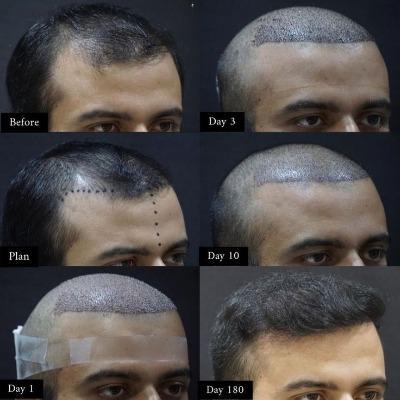If you are facing obesity, you are at risk of many health-related conditions. Moreover, a significant damaging influence on life quality may result from the relatively high frequency of psychopathological problems linked to obesity. However, most of the people fighting obesity and considering different therapies to control it are not always successful. Therefore, some surgical options in those conditions can help a lot. Bariatric surgery is one of them, having a great success rate and positive impact. However, the effects of bariatric surgery on psychological health are still unknown. However, it is an effective option for the morbidly obese to accomplish significant weight loss and improve physical comorbidities. A patient’s sense of taking charge of their life and the support of medical professionals are important factors. It contributes to mental health. Further, it contributes to weight loss and improvements in body image. It also helps self-esteem, and self-concept improvement.
What Is Bariatric Surgery?
Bariatric surgery is a subset of surgical procedures. It is best for individuals who are obese and want to lose weight. If no other weight loss strategy is working, obesity seems to be a bigger risk to your health. Therefore, medical professionals can suggest bariatric surgery. By altering your digestive tract, primarily your stomach but occasionally also your small intestine, bariatric surgical techniques control the number of calories you can ingest and absorb.
Additionally, they may lessen the signals of hunger that reach your brain from your digestive system. These operations can aid in the treatment and prevention of numerous obesity-related metabolic disorders, such as fatty liver disease and diabetes. However, it is a complex fix. Successful implementation involves both prior preparation and sustained lifestyle modifications after that.
Why Is Weight Loss Surgery Performed?
Class III obesity is effectively treated with bariatric surgery. Health experts state that class III obese individuals find it extremely difficult to maintain weight loss with diet and exercise alone. Your body returns to that weight once it recognizes your increased weight as normal. By altering how your body processes food, bariatric surgery is helpful in your weight loss. It also improves your health with a good diet and lifestyle.
Bariatric Surgery’s Impact on Obesity-Related Health Conditions
Know how Bariatric Surgery’s Impact on obesity related health conditions and how it represents a game-changing technique. It can significantly improve health issues related to obesity.
- Management of Diabetes: Bariatric surgery, especially gastric bypass, has shown impressive results in treating diabetes. After bariatric surgery, changes in the body’s morphology and hormone levels lead to improved blood sugar regulation, insulin sensitivity, and metabolism.
- Reduction of Hypertension: Obesity and hypertension frequently coexist, increasing the risk of cardiovascular problems. This outcome shows that surgical interventions have a direct influence on hypertension, even in the absence of significant weight loss.
- Enhancements to Cardiovascular Health: Bariatric surgery positively impacts cardiovascular risk variables and blood pressure. It contributes to a decreased risk of heart disease by lowering inflammation and cholesterol levels.
- Resolution of Sleep Apnea: Following bariatric surgery, sleep apnea, a prevalent ailment among obese people, shows a substantial resolution. The severity of sleep apnea frequently decreases with weight loss, leading to better sleep.
- Improved Mental Health: Bariatric surgery is linked to improvements in mental health. It encourages weight loss and healthy lifestyle modifications. Losing weight causes improved body image and self-esteem, which add to a more optimistic perspective.
- Decrease in Joint Pain: Being overweight puts a lot of strain on joints, aggravating diseases like osteoarthritis. Reducing joint tension enables one to lead a healthier and more active lifestyle.
- Improvements to Reproductive Health: Obesity can affect fertility and pregnancy outcomes, among other aspects of reproductive health. Reductions in pregnancy problems and increased fertility in women have been associated with bariatric surgery.
- Long-Term Weight Maintenance: Bariatric surgery offers a tool for long-term weight management, not only rapid weight loss. Through changes in appetite and metabolism, surgical adjustments to the gastrointestinal system facilitate early weight loss and long-term maintenance.
Conclusion
In the final verdict, bariatric surgery shows promise as a holistic treatment for those battling obesity and related health issues. Beyond its obvious effects on weight loss, this surgical procedure provides a comprehensive approach to health. It treats and frequently cures a variety of obesity-related problems. Deciding to have bariatric surgery should be well-informed and involve extensive consultation with medical specialists. Following bariatric surgery, the path to a healthier and more fulfilled life includes significant gains in general well-being and physical changes.










Leave a Reply